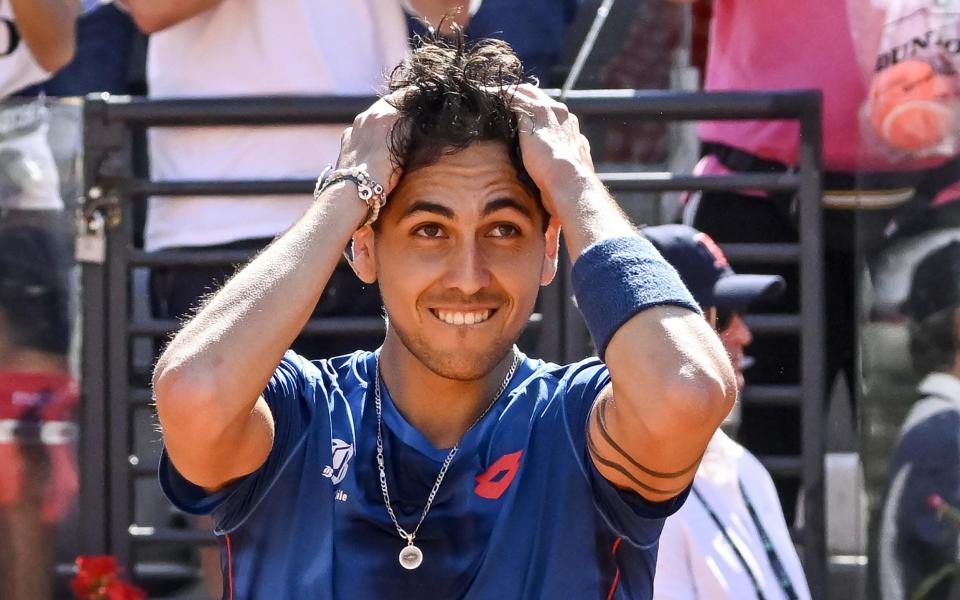Novak Djokovic’s mystifying season continued as he suffered a crushing defeat by world No 32 Alejandro Tabilo in Rome, losing 6-2, 6-3 in a mere 67 minutes.
Djokovic’s flat and listless performance is unlikely to be related to the blow he received on the head two days previously, when an autograph-hunting fan accidentally dropped a metal water bottle from the stands.
Rather, it is probably a consequence of a general lack of motivation. At 36, Djokovic is visibly struggling to fire himself up at the majority of ATP Tour events.
His latest defeat was his fifth in 17 outings this year, so that while he remains at the top of the world rankings, he stands at a relatively lowly 12th place in the ATP’s “Race to Turin” – a chart which only counts results for the 2024 season.
This also means that Djokovic will go into the French Open – which starts in a fortnight’s time – dealing with an unprecedented lack of match practice.
Given that both world No 2 Jannik Sinner and No 3 Carlos Alcaraz were unable to participate in the Italian Open, on account of hip and forearm injuries respectively, this French Open is shaping up as the most open grand-slam event since the rise of the “Big Three”.
In all probability, Djokovic will be able to motivate himself much more effectively when playing for a 25th major title. But even a man of his class and experience could be vulnerable when going into Paris with just six clay-court matches under his belt this season.
We should pause for a second to give Tabilo – a Canadian who plays under the Chilean flag – some deserved credit. While not a familiar name, Tabilo has climbed high enough to be seeded at the majors since winning his maiden ATP title in January.


Tabilo’s lefty forehand was on fire in this match, scoring a quality rating of 9.8 out of 10 on the ATP index. But it should be said that he was despatching a lot of juicy “meatballs” which sat up nicely in the middle of the court.
Djokovic could hardly have communicated his lack of interest more clearly. He rushed between points, often taking only 15 of the allocated 25 seconds when serving. There was no sign of the usual poker-faced ball-bouncing, which he normally employs to focus his mind before the toss.
Neither did he look across to his player box, which featured his recently reappointed physical trainer Gebhard Gritsch in the absence of Goran Ivanisevic and Marco Panichi (both of whom have left the Djokovic camp in the last couple of months). From time to time, he wore a wry smile, as if amused by the absurdity of the sport he has dominated for the past decade.
There are certainly precedents for Djokovic turning his own form around quickly, Last year, he lost to Holger Rune in the Rome semi-finals, but still told reporters that he was confident about his prospects in Paris – a prediction that proved accurate when he eased past a cramping Alcaraz at Roland Garros and then walloped Casper Ruud in the final.
But this has been a funny old year for Djokovic, who has yet to reach a single ATP final, and who delivered one of his worst-ever grand-slam performances against Sinner at January’s Australian Open.
Going into 2024’s clay-court showpiece, second-tier players like Ruud, Alexander Zverev and Stefanos Tsitsipas – all major finalists and top-ten regulars – will surely feel emboldened about their chances.
Source Agencies
